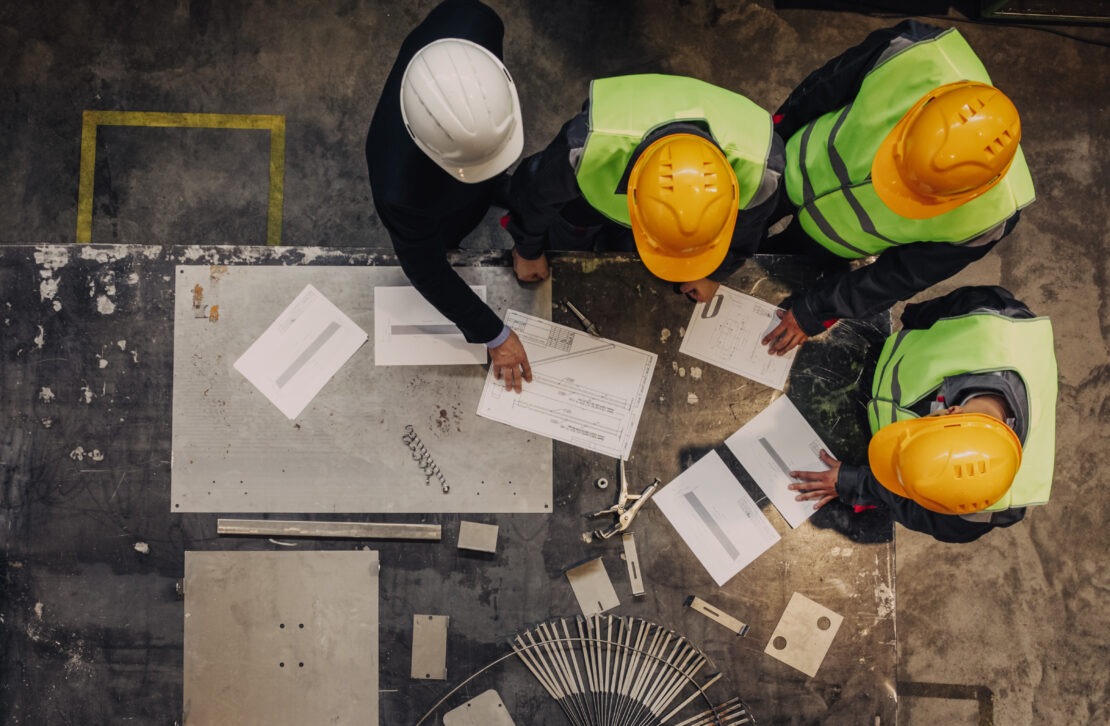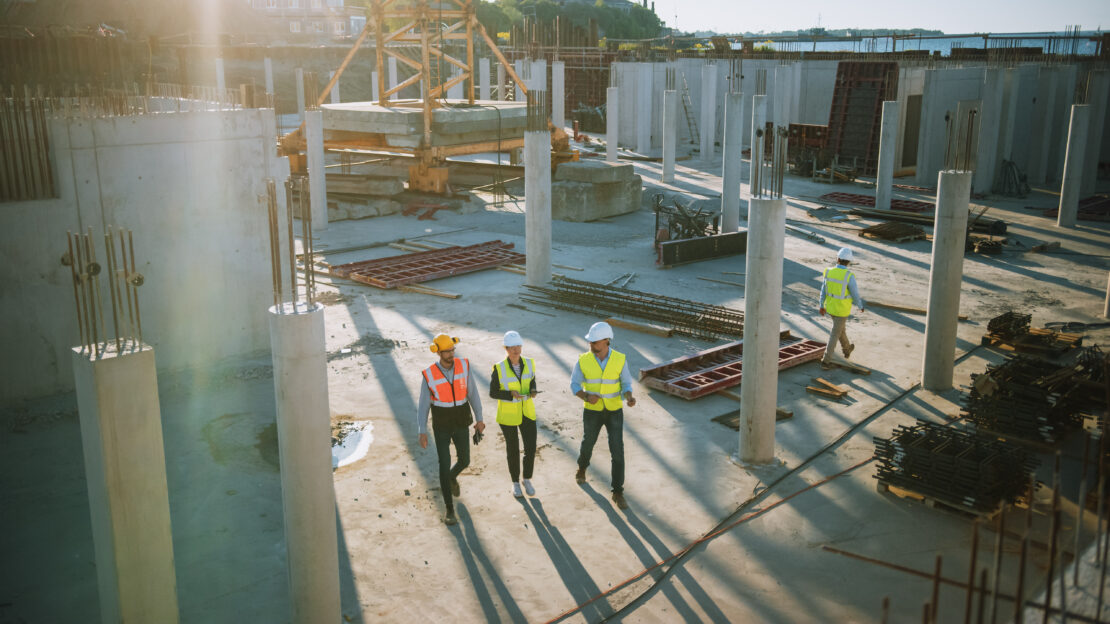
What Are the Differences Between Commercial & Industrial Construction?
Many people use commercial and industrial construction synonymously, but they’re not the same.
Commercial construction refers to building, upgrading, and maintaining small-to-large retail businesses like grocery stores, restaurants, strip malls, and hospitals. Comparatively, industrial construction deals with building, upgrading, and maintaining industrial facilities, manufacturing plants, power plants, oil refineries, and other complex structures.
Although both types of projects are similar in that they deal with construction, upgrades, and maintenance work, there are a few primary differences to highlight.
Location & Site Planning

Location matters. Both commercial and industrial entities require accessibility for employees and customers.
Commercial construction contractors focus on designing sites that prioritize simplistic, functional traffic flow, ample parking spaces, and pedestrian amenities. A commercial building should always be in a high-traffic area near the target demographic and easily accessible to the customer.
On the other hand, industrial contractors are building structures that the public will not use. Instead of focusing on aesthetics and traffic flow, they are more concerned with maximizing on-site production and staying cost-efficient. Additionally, industrial facilities typically operate 24/7 and must have easy access to major highways, airports, and other transportation assets.
Building Design & Infrastructure
Commercial and industrial contractors deal with related but distinct infrastructure requirements.
During the building design stage, commercial construction contractors focus on developing centralized infrastructures that accommodate the needs of employees and customers. Like a residential home, a commercial establishment requires adequate plumbing, electrical, and HVAC systems to meet the needs of the tenants.
Industrial developments are different. Their infrastructures must accommodate the need for high-power electrical systems that can handle the loads associated with heavy manufacturing machinery operations.
In addition to the possible need for massive electrical consumption, industrial entities must have the capacity to manage copious amounts of waste products according to industry-specific policies.
Labor & Management Requirements

Next, the labor and management resources needed for commercial construction developments are similar to those required in residential construction. The building process involves many of the same elements, just on a larger scale.
Industrial construction projects require teams with more advanced skill sets. Industrial contractors and team managers must have specialized knowledge and experience with the following:
- Customized Fabrication
- Large-Scale Installations
- Industrial Equipment Assembly
Industrial contractors must also deal with the logistics of transporting and relocating massive equipment like turbines, generators, and overhead traveling cranes.
Inspections & Permits
Lastly, as the scale of construction grows from commercial to industrial contracting, so do the permitting and inspection requirements. Typically, commercial construction permitting is centered on local planning and zoning requirements and generalized occupancy and safety constraints. Overall, it’s easier for a commercial business to meet permitting requirements and open its doors to the public.
On the other hand, industrial contractors must incorporate the guidelines set forth by local, state, and federal regulators into their designs. Compliance factors for industrial construction projects are substantially more stringent when hazardous materials enter the equation, which is quite common in industrial operation scenarios.
Start Your Industrial Construction Project With Help From IICC
IICC is proud to be a trusted source for industrial construction projects. Founded over 60 years ago, we provide highly specialized rigging, millwright, steel erection, shutdown, and plant turnaround services to clients in various markets and industries. We’re known for our quick turnaround times, detailed plans, and time-sensitive services.
Contact us today to learn more about our industrial construction services and capabilities.
